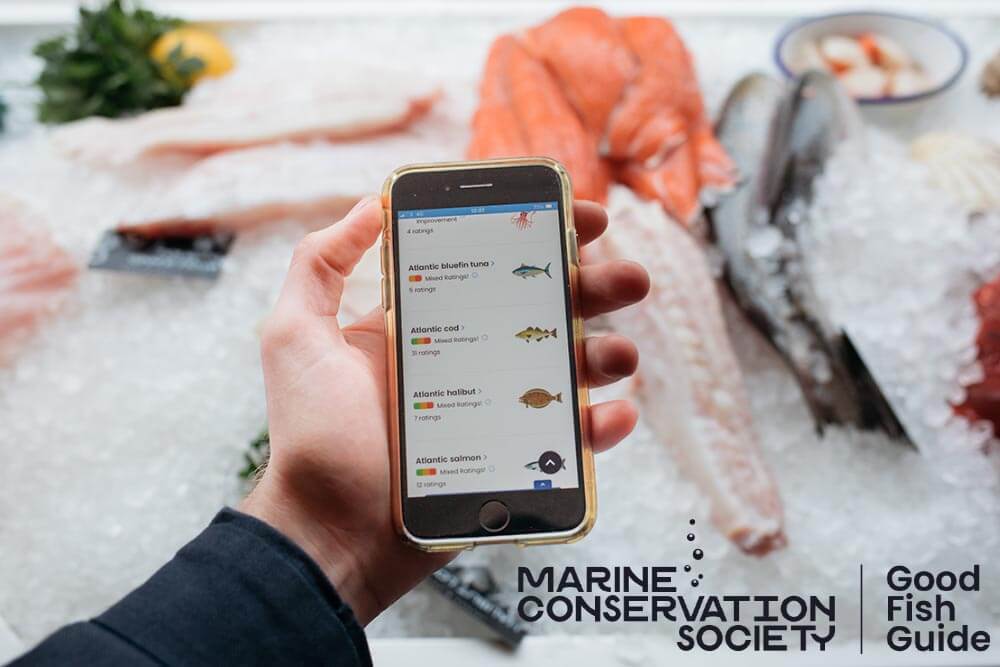
The Marine Conservation Society (MCS) has published a new update to its Good Fish Guide, but the latest assessment of UK seafood shows that there is an ‘urgent need for more rigorous management and effective policies to create a sustainable fishing industry and a healthy ocean.’
The Good Fish Guide identifies which seafood is the most sustainable by using a traffic light system: green for best choice; amber for fish that is okay to eat but where improvements from fisheries are needed; and red indicating fish to avoid. Fourteen species have joined the ‘fish to avoid’ list in 2022, and 10 have become ‘best choice’.
UK governments are currently consulting on a new legislative framework for managing local fisheries known as the Joint Fisheries Statement (JFS) and will be introducing a number of Fishery Management Plans (FMPs). These will provide a new policy direction for UK fisheries, presenting a crucial opportunity to make much-needed improvements.

‘For a thriving industry, future food security and the health of our ocean, it’s crucial that the UK governments seize the new opportunities posed by the Joint Fisheries Statement and Fisheries Management Plans to fix our fisheries,’ said Clara Johnston, Fisheries Policy Manager at the Marine Conservation Society. ‘The latest Good Fish Guide ratings – where all new UK ratings are either amber or red rated – illustrate the urgent need for transparency and better management if we’re to recover fish stocks in UK seas.’
In addition to the new management proposals, the Future Fisheries Alliance (FFA), a collaborative project between the Marine Conservation Society, WWF and the RSPB, is calling for the UK government to commit to recovering depleted fish stocks through better environmental management, the roll-out of a remote electronic monitoring (REM) camera system, action to tackle bycatch and a commitment to set out a ‘climate-smart’ fisheries strategy.
Ensuring sustainable fisheries into the future is an extraordinarily challenging proposal. The MCS report lists catches of cod, whiting and haddock caught in the Celtic Sea, in the southwest UK. Cod and whiting in the area are at dangerously low levels, but they swim and feed together with the healthy population of haddock, making it impossible to target one species without affecting the others. The FFA says that such issues could be addressed through better ecosystem monitoring.

‘The latest ratings on the Good Fish Guide highlight how better management of UK seas is needed to stop overfishing and protect wildlife,’ said Charlotte Coombes, Good Fish Guide Manager. ‘Currently, there are 656 ratings available on the Good Fish Guide, with 148 on the Best Choice list. However, there are 161 Fish to Avoid. With all new UK ratings to the Guide being either amber or red rated, it’s clear that we need interventions to turn the fate of the UK’s seas around.’
Together with better monitoring and management of fish stocks, MCS and the FFA are also calling for urgent action to tackle the problem of bycatch, which affects a wide range of species, including dolphins, whales and sharks. Proper management of the sea bed is also required to ensure the sustainability of lobster and crab populations, several species of which have been downgraded on the Good Fish Guide to amber and red this year, in light of population decline.

The FFA is also calling for all administrations to set out a climate-smart fisheries strategy for UK fisheries management, with timebound commitments to provide a clear path to climate recovery and reaching net-zero by 2050. This would see goals to reduce the UK fleet’s carbon emissions, and protect blue carbon habitats from activities that damage them. You can read the report, from the Marine Conservation Society, WWF and RSPB, and guidance on climate smart fishing, here.
Find the latest sustainable seafood options on the Good Fish Guide, downloadable straight to your phone from Home | Good Fish Guide (mcsuk.org).


